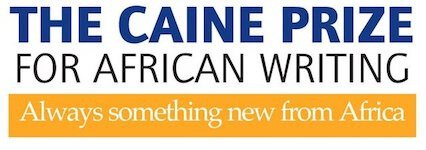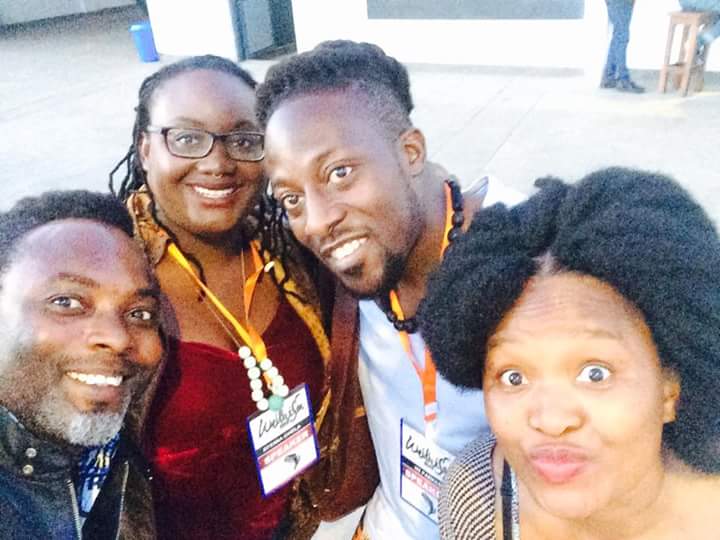Efemia Chela
I was 22 when I got nominated for the 2014 Caine Prize for African Writing. I was working illegally in a job I was terrible at, living on the floors of my friends’ houses, moving in and out every week or so. Before that I remember thinking I couldn’t ever be a real writer or at least not for long. An abridged list of reasons - what more would I write? Would I like what I wrote? Would other people get my work? If I kept writing to entertain myself could I keep convincing people to come along for the ride? Could I even make any money from it?
Then I got the call that changed my life, and not in ways I ever expected.
Before the Caine Prize my knowledge of the contemporary African literary ecosystem as well as its digital blossoming was minimal. In that way I was quite insular, I was just writing in my (or someone else’s) room and yet I simultaneously had the dream of wanting to be a publisher. It’s ironic I had to leave the continent for a couple of weeks to open my eyes to all the exciting initiatives in my midst back home. The experience of being a nominee allows you to talk to and be exposed to amazing people from the head curator of The British Museum to the clerk at The House of Lords post office (where I sent a letter from my past self to South Africa to be read by my future self). I met readers, writers and academics I didn’t yet know would be in my life forever. Physical distance gave me clarity and directly feeling the rest of world’s interest in fiction from Africa gave me hope and ideas for what I might do next. And it made me bolder.
Not winning The Caine Prize that year, my immature mind took as a kind of rejection. But that event made me realise I could survive “rejection” and so I took more and more chances to possibly get “rejected”, a kind of professional masochism. I started asking for things out of my reach. A lot of them I was 75% sure I couldn’t do but that just made me force myself to learn how to do them.
Social media – why not?
I jumped into running Short Story Day Africa’s social media presence, since they had started my creative career as it were, by first publishing ‘Chicken’, in 2013. Surveying the digital landscape, looking for watering holes of good writing really gives me a sense of what’s happening with African literature better than going into a bookshop can.
Editing strangers’ work (with strongly held contrarian views on Oxford commas) – why shouldn’t I?
Working on the Migrations anthology with Helen Moffett and Bongani Kona (also a Caine Prize alumnus) really pushed me to think about editing differently – it’s as delicate as international diplomacy - and how the role of an editor can really sway a piece, for better or for worse. A lot of power and responsibility comes with touching people’s talent. I’m very proud of the collection we helped give birth to. And needless to say it was also great fun.
Being a writer is a notoriously lonely undertaking and all these projects have helped to cut the isolation in between having my stories published. They make writing a lot more fun than if I just kept to myself. I think dialogue, debate, critique will keep African writing vibrant. For me being part of the conversation is a way of keeping the quality of work high, my literary palate balanced and mind sharp. It does this in a more immediate way than annual prizes although great, just can’t. Just don’t stab anyone!
Judging established authors’ work when I haven’t even finished a book myself – sign me up!
I thought The Johannesburg Review of Books were joking when they asked me to come on board as a Contributing Editor. I’ve gotten to interview Claudia Rankine, flex my translation muscles and do some exciting literary criticism. It was daunting at first, but a couple of issues in, my imposter syndrome is wearing off a bit and the rest of the team are getting used to my, let’s just say, “unique” pitches.
Efemia at Writivism 2017 with A. Igoni Barrett, Nii Ayi-Kwei Parkes, and Gaamangwe Joy Mogami. (2017)
Being invited to Writivism this year was a kind of the culmination of what’s happened in the past three, four years of my writing life. I was in Uganda, a country I’d never visited before but definitely have to return to. On a rooftop sharing Nile Specials with a lot of friends I’d bonded with talking about African literature online but never met in real life. Eating a rolex after a cheeky Writers Night Out that turned into a morning. Riding boda-bodas up and down the verdant hills of Kampala, listening to the slam poetry, chatting to editors of other literary journals, being asked when I’ll start writing fiction again – it was like coming full circle. Running my second writing workshop this year on behalf of Short Story Day Africa, made me realise how much I enjoy facilitating workshops that nurture emerging talent and focus on writer development, so a new adventure on that path may be ahead of me.
In the end The Caine Prize wasn’t what I thought it would be. I erroneously thought only winning the big prize could make me a real writer but it isn’t about what happens in Oxford (beautiful as the Bodleian library may be). What made me a writer was what I did afterwards – scribbling away, keeping my creative channels open, talking about African writing with other enthusiasts, and gorging myself on life. I had thought there was only one way to be a writer. It took me a while to realise the real prize that I had been given was the knowledge that there are a several paths, up, down and roundabout that can lead to you to producing great writing, getting involved in meaningful projects and finding a literary family along the way.
About the Author
Efemia Chela is a Zambian-Ghanaian writer, literary critic and editor. Her first published story, ‘Chicken’ was nominated for The 2014 Caine Prize For African Writing. Efemia’s subsequent stories and poems have been published in places like Brittle Paper, Short.Sharp.Stories: Adults Only, Wasafiri and PEN Passages: Africa. Efemia recently co-edited the 2016 Short Story Day Africa collection, Migrations. She is currently the Francophone and Contributing Editor for The Johannesburg Review of Books.


